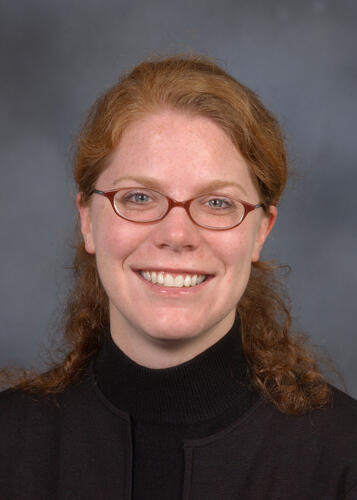
Bonnie Fleming has been awarded a five year CAREER grant starting January 2007 from the National Science Foundation.
CAREER: The Faculty Early Career Development (CAREER) Program is a Foundation-wide activity that offers the National Science Foundation’s most prestigious awards in support of the early career-development activities of those teacher-scholars who most effectively integrate research and education within the context of the mission of their organization. Such activities should build a firm foundation for a lifetime of integrated contributions to research and education. NSF encourages submission of CAREER proposals from junior faculty members at all CAREER-eligible organizations and especially encourages women, members of underrepresented minority groups, and persons with disabilities to apply.
Proposal abstract: What is the source of the matter/anti-matter asymmetry in the universe? The technical name for this asymmetry is “CP Violation” and the R&D proposed here will be an important step to determine if neutrinos can be an important part of the answer.
Specifically, a next generation neutrino oscillation experiment which sends a neutrino beam from Fermilab to NSF’s proposed Deep Underground Science and Engineering Laboratory (DUSEL) can address this question. A new type of detector will be necessary, however. The proposed detector is known as a Liquid Argon Time Projection Chamber (LArTPC).
This proposal will investigate the capability and feasibility of this detector at useful energies. This proposal seeks to build and operate a prototype detector. This is an important next step in the R&D path towards building a massive LArTPC.
The broader impacts of this proposal will bring junior high school teachers into this program as researchers. Further, the PI proposes to develop a school-year program for 6-8 grade girls which draws from this research program. It is noted that in the 6-8 grade, girls begin to perform more poorly than boys in math and science. The PI hopes that the focus on interesting girls in science at a pivotal time for their success will help to encourage them to pursue science.